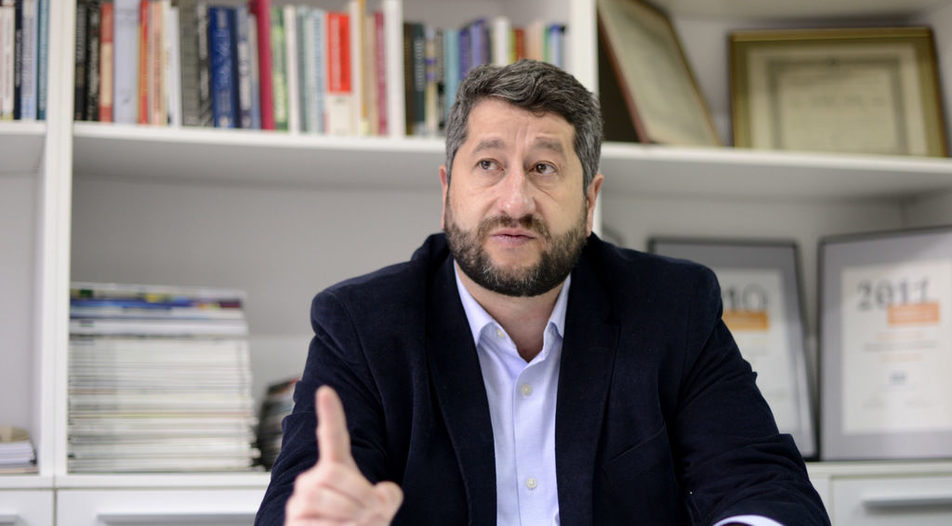On December 9th the debating chamber of the Bulgarian Parliament was bizarrely full of MPs. The unexpected surge of hustle and bustle on behalf of the Bulgarian politicians was the voting of a package of constitutional amendments supposed to balance out the influence of the Prosecutor General in the Supreme Judicial Council and make him or her accountable to Parliament. The changes were assumed to be the pinnacle of the reformist efforts of the second Borissov government which came to power in 2014 on a platform of transparency and justice.
Mr Hristo Ivanov became the leading figure of judicial reform. Previously, he had a long career in the non-governmental sector and was one of the vocal faces of the protests against the appointment of media mogul Delyan Peevski as head of the secret services by the Oresharski government in the summer of 2013. Several months later the next prime minister, Boyko Borissov, personally vouched for his appointment as a Minister of Justice as a representative of the Reformist Bloc, the junior partner in the minority coalition government led by Mr Borissov.
It was a triple win for Mr Borissov - the appointment was an act of goodwill towards the Reformists, it pleased Bulgarian citizens who identified corruption as the main problem of Bulgarian politics and took to the streets for almost an year to protest against graft, and last but not least, Mr Ivanov was well received in Brussels. Ever since Bulgaria joined the EU, Brussels has been trying to support efforts to enhance the rule of law in the country through the Cooperation and Verification Mechanism (CVM). Mr Ivanov was seen as the perfect facade of judicial reform due to his longstanding efforts to promote a more transparent and accountable judiciary through his Bulgarian Institute for Legal Initiatives, a NGO.
Unfortunately, that's exactly what Mr Ivanov would turn out to be during the crucial parliamentary vote - a facade of the joint efforts of all big parties to remain loyal to the status-quo in the judiciary as they all were afraid they could easily become its victims (see the article on the Prosecutor General). In the weeks prior to the vote almost all political parties had agreed on a pact to vote for a watered-down version of the constitutional changes. It sounded almost like the thing that Mr Ivanov had been working on in the past year as a justice minister but not quite the same - it lacked the accountability instrument for the Prosecutor General.
In a move almost unseen among Bulgarian cabinet ministers, Mr Ivanov announced his resignation at the parliament rostrum, citing the fact that if there is no political will to enact the changes he had been appointed to pursue, there is no place for him in this government. But his efforts to reform the judiciary hadn't been in vain - the topic has become a prominent feature of civil debates in the past two years and the smearing campaign against Hristo Ivanov by the media outlets controlled by Delyan Peevski made the ex-minister a household name.
A year after the ignominious vote, after Borissov's government had eventually resigned, Mr Ivanov announced the launch of a new political party focused on the fight against graft. "Yes, Bulgaria" started off as an initiative of young and successful professionals from larger cities and Bulgarian expats. It is meant to be fully self-funded by the contributions of its members and it aims to attract not only traditional center-right voters, but also disenchanted Bulgarians who opt out of voting.
Yet, the first moves of the party were controversial - it decided to run on its own in the early elections in March 2017, which meant division in the center-right space, where now three political factions will run to win the votes of that urban electorate - the remains of the Reformist Bloc, the new project of Mr Ivanov's only parliamentary ally - Radan Kanev from right-wing Democrats for Strong Bulgaria, called New Republic, and Yes, Bulgaria. It remains to be seen if the huge momentum that Yes, Bulgaria gained in the first days since its launch would be sustained in the muddy field of Bulgarian elections, yet for many people disenchanted with the Reformist Bloc, its establishment remains a breath of fresh air.
On December 9th the debating chamber of the Bulgarian Parliament was bizarrely full of MPs. The unexpected surge of hustle and bustle on behalf of the Bulgarian politicians was the voting of a package of constitutional amendments supposed to balance out the influence of the Prosecutor General in the Supreme Judicial Council and make him or her accountable to Parliament. The changes were assumed to be the pinnacle of the reformist efforts of the second Borissov government which came to power in 2014 on a platform of transparency and justice.
Mr Hristo Ivanov became the leading figure of judicial reform. Previously, he had a long career in the non-governmental sector and was one of the vocal faces of the protests against the appointment of media mogul Delyan Peevski as head of the secret services by the Oresharski government in the summer of 2013. Several months later the next prime minister, Boyko Borissov, personally vouched for his appointment as a Minister of Justice as a representative of the Reformist Bloc, the junior partner in the minority coalition government led by Mr Borissov.












